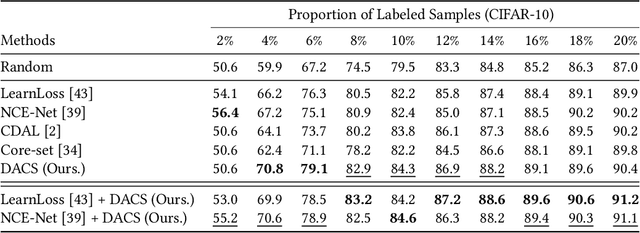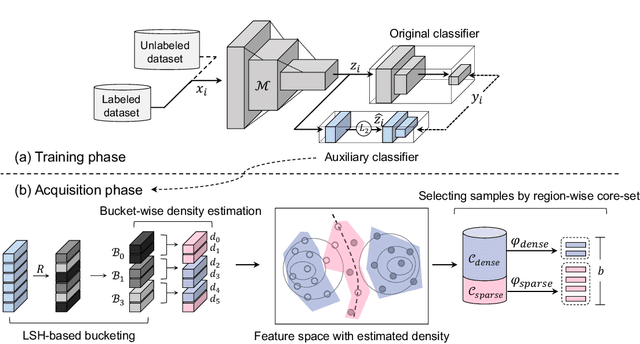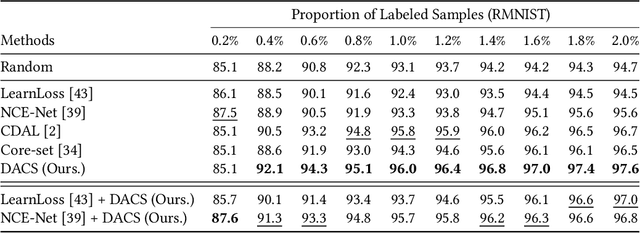In Defense of Core-set: A Density-aware Core-set Selection for Active Learning
Paper and Code
Jun 13, 2022



Active learning enables the efficient construction of a labeled dataset by labeling informative samples from an unlabeled dataset. In a real-world active learning scenario, considering the diversity of the selected samples is crucial because many redundant or highly similar samples exist. Core-set approach is the promising diversity-based method selecting diverse samples based on the distance between samples. However, the approach poorly performs compared to the uncertainty-based approaches that select the most difficult samples where neural models reveal low confidence. In this work, we analyze the feature space through the lens of the density and, interestingly, observe that locally sparse regions tend to have more informative samples than dense regions. Motivated by our analysis, we empower the core-set approach with the density-awareness and propose a density-aware core-set (DACS). The strategy is to estimate the density of the unlabeled samples and select diverse samples mainly from sparse regions. To reduce the computational bottlenecks in estimating the density, we also introduce a new density approximation based on locality-sensitive hashing. Experimental results clearly demonstrate the efficacy of DACS in both classification and regression tasks and specifically show that DACS can produce state-of-the-art performance in a practical scenario. Since DACS is weakly dependent on neural architectures, we present a simple yet effective combination method to show that the existing methods can be beneficially combined with DACS.
 Add to Chrome
Add to Chrome Add to Firefox
Add to Firefox Add to Edge
Add to Edge